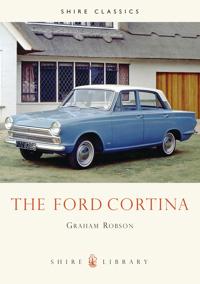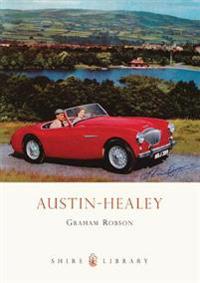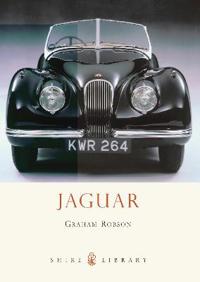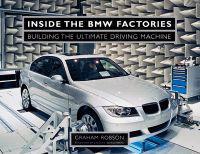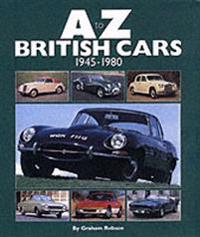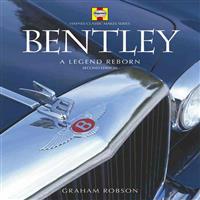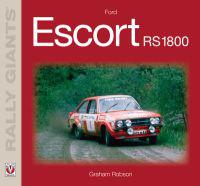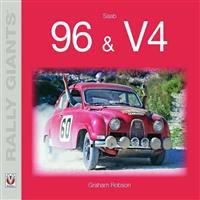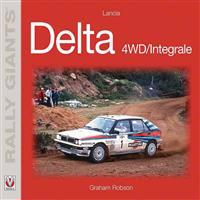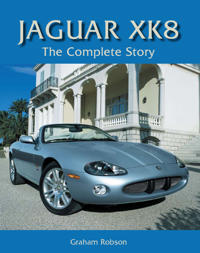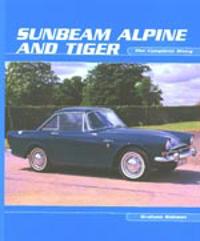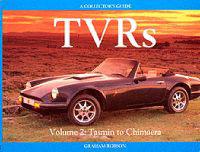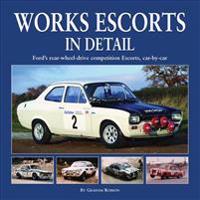Subaru Impreza (Pocket)
avRobson, Graham
ISBN: 9781845840426 - UTGIVEN: 2006-12-07Describes the birth, development, and rallying car of the turbocharged, four-wheel-drive Subaru Impreza in the 1990s and early 2000s, providing a compact history of where, when and how it became so important to the sport.[...]
Fiat 131 Abarth (Pocket)
avRobson, Graham
ISBN: 9781845841829 - UTGIVEN: 2008-11-27When Fiat entered rallying in 1970, its ultimate aim was to become World Rally Champion and the 131 Abarth of 1976-1980 provided the machinery to make that possible. Within the Fiat-Lancia empire, the 131 Abarth not only replaced the 124 Abarth Spider sports car, but was also favored ahead of the ch[...]
Toyota Celica GT-Four (Pocket)
avRobson, Graham
ISBN: 9781845841843 - UTGIVEN: 2009-08-27This is a comprehensive study of the career of the Toyota Celica GT4. Starting in 1988, three generations of this effective turbocharged four-wheel-drive car - known by enthusiasts as ST165, ST185 and ST205 types - fought for World Championships, and were amazingly successful for almost a decade. Al[...]
Austin Healey (Pocket)
avRobson, Graham
ISBN: 9781861264657 - UTGIVEN: 2001-08-27Unveiled in 1952, the Austin-Healey 100 was an innovation in the sports car market and won instant acclaim. As the series developed, the cars only became more popular and garnered an even larger following. This illustrated retrospective describes the cars' evolution, providing performance specs for [...]
Monte Carlo Rally: The Golden Age, 1911-1980 (Inbunden)
avRobson, Graham
ISBN: 9781906133009 - UTGIVEN: 2007-11-29Hundreds of entrants, in cars of all shapes and sizes, battled through mid-winter snow, fog, ice and darkness from far-flung starting points towards the magical principality of Monaco. Mishaps, breakdowns and smashes abounded, and competitors had tales to tell of cars teetering on the edge of precip[...]
The Ford Cortina (Häftad)
avGraham Robson
ISBN: 9780747805199 - UTGIVEN: 200112When launched in 1962, the Ford Cortina was an entirely new type of British car. Compared with its rivals - and with earlier Fords - it was light yet strong, inexpensive yet roomy, mechanically simple and cheap to maintain. It quickly established a totally new class of car. Once it was seen to be [...]
Austin-Healey (Pocket)
avGraham Robson
ISBN: 9780747807698 - UTGIVEN: 201003Born in 1952, the Austin-Healey 100 soon took the UK and US markets by storm. A beautiful, brutish car, it was what many sporting motorists had been waiting for, and at a relatively affordable price. Following the 100, was the 3000 - a car as successful on the rally stage as it was loved on the open[...]
Jaguar (Pocket)
avGraham Robson
ISBN: 9780747812036 - UTGIVEN: 201208Sir William Lyons enjoyed a seemingly unstoppable rise to fame and fortune in the motor industry, and the Jaguar brand that he introduced became world-famous. Yet it did not happen overnight. In the 1920s he was in Blackpool, styling motorcycle sidecars, and in the 1930s in Coventry developing the S[...]
Inside the BMW Factories (Inbunden)
avGraham Robson
ISBN: 9780760334638 - UTGIVEN: 200812BMW's Bavarian blue and white propeller logo starts back with the beginning of the company as an aircraft engine manufacturer. How this company weathered two World Wars, depression, recession, and moved from aircraft to motorcycles and, finally, to the cars that would provide not only it's greatest [...]
A to Z British Cars 1945-1980 (Inbunden)
avGraham Robson
ISBN: 9780954106393 - UTGIVEN: 2005-12This is the largest and most detailed encyclopaedic study ever produced of all the models of cars produced by British manufacturers in the period. Just over 700 individual models are covered in text entries totalling more than 250,000 words. Full specifications and performance figures are given, alo[...]
Bentley (Inbunden)
avGraham Robson
ISBN: 9781844254910 - UTGIVEN: 201005Here is the complete history of Bentley, one of Britain's most distinguished marques, from its creation in 1921, through its renaissance under VW ownership, motorsport highlights including the 2003 victory at Le Mans, and up to the present with the introduction of the Flying Spur saloon, Azure, Cont[...]
Ford Escort RS1800 (Häftad)
avGraham Robson
ISBN: 9781845841409 - UTGIVEN: 200805Escort RS1800 (Escort MkII): This is a Rally Giant because it was consistently the fastest, most successful and most versatile car in the second half of the 1970s. Developed from the MkI, it was a conventional front engine/rear drive machine, which rallied with 2-litre engines of up to 270bhp. Rally[...]
Ford Escort RS Cosworth/Escort WRC (Häftad)
avGraham Robson
ISBN: 9781845841812 - UTGIVEN: 200811The Escort RS Cosworth, which started rallying in 1993, was one of the most ingenious designs of all time. What started as a shortened Sierra Cosworth 4X4 platform, topped off by a modified Escort cabin and outer skins, was soon developed into a versatile and sophisticated rally car, and eventually [...]
Saab 96 and V4 (Häftad)
avGraham Robson
ISBN: 9781845842567 - UTGIVEN: 201003The front-wheel-drive Saab 96 made the brand into a rally icon in the 1960s. Superstar driving from Erik Carlsson, his wife Pat Moss-Carlsson and - later - from Stig Blomqvist, all brought real publicity and admiration for a car that always lacked the sheer straight-line performance of its rivals. S[...]
Lancia Delta 4X4/Integrale (Häftad)
avGraham Robson
ISBN: 9781845842581 - UTGIVEN: 201003No sooner had the exciting, but increasingly dangerous, Group B rallying category been killed off in May 1986, than rally teams needed to develop new Group A cars. To be competitive, the cars would need four-wheel-drive, and engines producing at least 300bhp to bring them up to the notional limits i[...]
Jaguar XK8: The Complete Story (Inbunden)
avGraham Robson
ISBN: 9781847970749 - UTGIVEN: 200908It was code-named X100 and it was to be Jaguar's latest sports cars, featuring both coupe and convertible coachwork. It was to have an all-new V8 engine and it was to replace the XJS. It would also ultimately have the most powerful forced-induction engine of any production Jaguar road card and it ha[...]
Sunbeam Alpine and Tiger (Pocket)
avGraham Robson
ISBN: 9781861266361 - UTGIVEN: 2003-12The Sunbeam Alpine and Tiger were in many ways revolutionary cars, coming as they did from a British manufacturer with no history or reputation for sports car design. The Alpine remained in production for nine years - the remarkable V8-engined Tiger for scarcely one third as long. Graham Robson, who[...]
Tvr's (Pocket)
avGraham Robson
ISBN: 9781899870462 - UTGIVEN: 1994-04The true collector's guide to TVRs. It includes in depth descriptions of each model, accompanied by photographs and drawings. A history of the cars are also provided, describing exactly how it came to be. Also included are technical specifications, chassis number sequences, maintenance and performan[...]
Works Escort in Detail (Inbunden)
avGraham Robson
ISBN: 9781906133443 - UTGIVEN: 201211The Mk1 and Mk2 Escorts were humble family cars that ended up as highly successful competition cars, both on the rally stage and the race track. Car by car, this book covers all Ford's works cars. Between 1968 and 1981 the Ford Escort was probably the most successful rally car in the world. Rallying[...]






